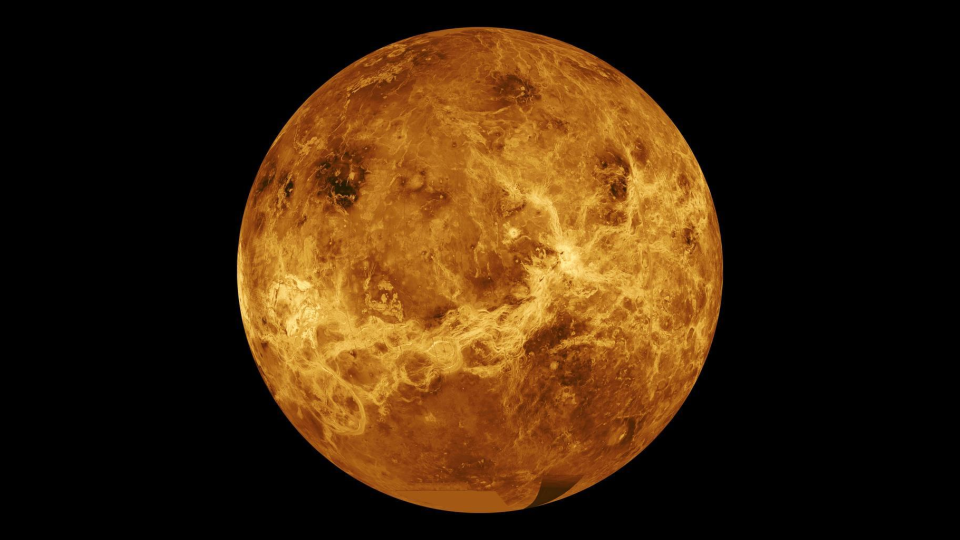
Another big topic of discussion at LPSC seemed to be Venus. I say “seemed” because I’m sure the actual big topic of discussion was proposed budget cuts, which could be as much as 50%, but there was no definitive information on budget cuts, so that is more a big topic for gossip than for actual fact-based discussion.
So let’s look at Venus.
The most recent missions to Venus were Japan’s Venus Climate Orbiter, which studied the Venusian cloud cover from 2015 to 2024, and ESA’s Venus Express, which also studied Venus’s atmosphere, and orbited from 2006 to 2015. Together, these 2 missions provided nearly 20 years of continual atmospheric observations.
Which is cool and all – or at least super hot and acidic – but in the decades since these two missions were designed and launched, researchers have realized that Venus may still have active volcanoes, and it may once have had habitable conditions, including oceans. Researchers are deeply interested in understanding if Venus, Earth, and Mars may all have been briefly capable of supporting cellular life – microbes and bacteria – at the same point in our solar system’s history.
And let’s face it, volcanoes – especially active volcanoes – are just kind of awesome, and everyone is excited that Venus might still be geologically active.
This research is based on radar data from the 1990s, that was obtained by Magellan, and new radar instruments are planned for future Venus explorers, such as NASA’s planned VERITAS. Researchers are also learning how to image Venus’s surface using the Parker Solar Probe, which periodically does flybys of Venus, and the future DAVINCI mission is being designed with a descent probe to do future imaging.
Unlike Earth, it doesn’t appear that Venus has crustal plates that move across its surface, defining volcanically active regions associated with plate interactions like we see with Earth’s ring of fire. Instead, Venus has other volcanic drivers that new data is really needed to understand. Several researchers pointed out that we are at least 10 years away from getting data back from new missions planned for Venus. On the one hand, that means there will be an amazing 30 years or so between Magellan’s radar data from the 90s and any new data, and we will potentially be able to see changes in the surface caused by volcanic activity. On the other hand, researchers currently planning Venus missions are pretty senior, and more than a few will qualify for social security before we get that data a decade from now.
This long stretch between DAVINCI and VERITAS getting selected in 2021 and its potential arrival sometime in the 2030s, means there will be researchers who spent a significant portion of their career proposing this mission in the 2010s, dreaming of launch and waiting for data. It was while watching these presentations that I became accurately aware that I could be one of those people, past social security age, holding on to my job so I can report on those future Venus discoveries.
That was a bit of a horrifying realization.
Although, to be fair, who among Gen-X will really be able to fully retire? At least I know I should have some pretty amazing news to report when my hair is truly grey, and probably still dyed magenta.
